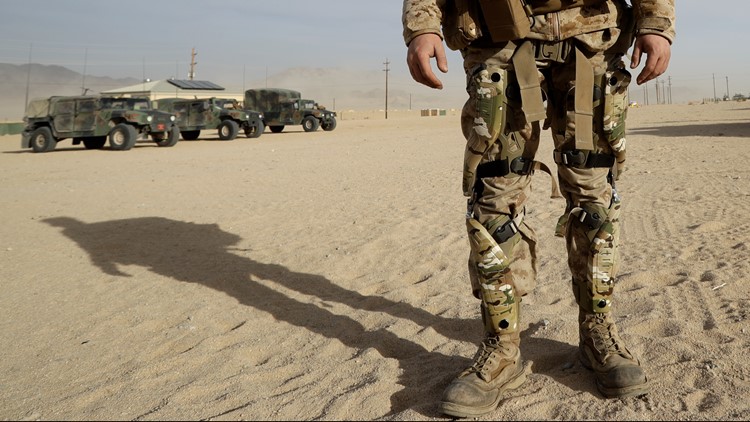WASHINGTON, D.C., USA — The U.S. Army is preparing its soldiers for a world trying to deal with the impacts of climate change. From extreme weather to scarce resources, the military branch says it needs to be prepared.
"Climate change endangers national and economic security and the health and well-being of the American people," the strategy reads.
"The risks associated with climate change are broad, significant, and urgent. These risks will impact the Army at all levels: from how and where units operate and train, to how the service as a whole equips and sustains Soldiers to fight in multi-domain operations," it adds.
The plan is to reduce the Army's emissions in half by 2030, create an electric fleet of noncombat vehicles by 2035 — with plans for electric combat vehicles to be developed by 2050 — and train soldiers for what a world in disarray could hold.
The Army says it currently has 950 renewable energy projects in the works, including a 2.1-megawatt solar field at Fort Knox. In total, the projects supply 480-megawatts of power to the Army.
Last year, the Department of Defense warned of the threat climate change posed on military operations, leading to all new global conflicts. For example, the department says water shortages have the potential to become a main source of conflict between soldiers stationed overseas and the countries they reside in.
Extreme weather events have already impacted several military bases across the world, including here in Florida. Reuters reports that Panam City's Tyndall Air Force base is among one of several bases that have suffered billions of dollars in damages due to flooding and hurricanes.
The strategy also calls for more training to include climate change topics by 2028 and to have lessons learned about climate change published in 2024.



